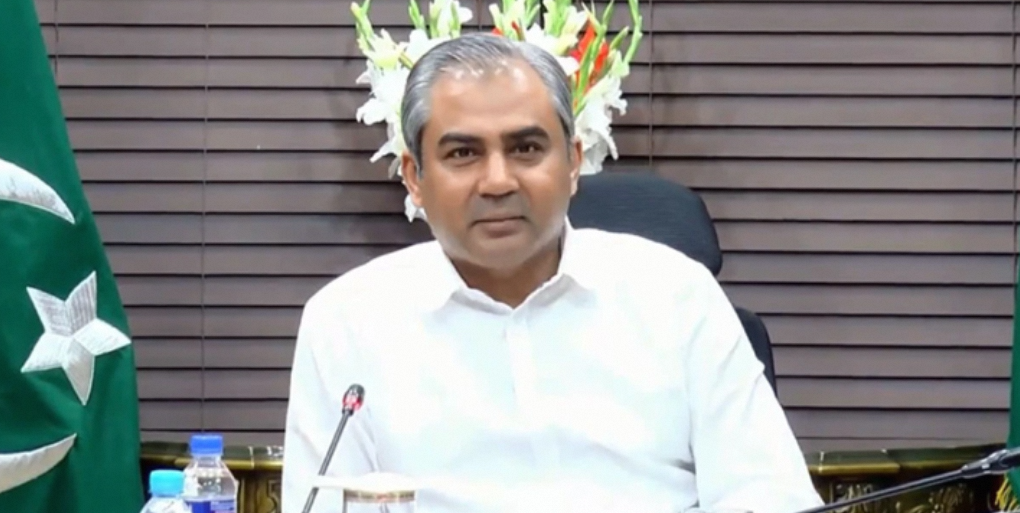
Pakistan’s Victory in Marka-e-Haq: Video Evidence Confirms Downing of Six Indian Jets
Federal Interior Minister Reveals Concrete Proof
Federal Interior Minister Mohsin Naqvi has publicly disclosed that Pakistan possesses video evidence confirming the destruction of all six Indian fighter jets by the Pakistan Air Force during the recent conflict known as Marka-e-Haq. Speaking at a seminar on “Global Impacts of Pakistan’s Military and Diplomatic Victories over India,” organised by the Waris Mir Foundation at Aiwan-e-Iqbal in Lahore, Naqvi highlighted the effective coordination and professionalism displayed by Pakistan’s armed forces and intelligence agencies during the May 2025 war.
Naqvi explained that Pakistan refrained from announcing the downing of the Indian jets until indisputable evidence was secured. “The videos of all six destroyed Indian aircraft were obtained within minutes, and I am disclosing this today,” he stated, emphasizing the importance of field evidence in asserting Pakistan’s claims. He further mentioned that while radar data was available immediately, leadership opted to wait for additional confirmation before making any public statements.
Intelligence Agencies Praised for Decisive Role
A significant portion of Naqvi’s address was dedicated to acknowledging the critical role played by intelligence agencies in securing the nation’s victory. He credited the agencies with obtaining advance information about Indian planning, flight operations, and decision-making throughout the conflict. “Our intelligence agencies were working silently but decisively behind the scenes, and they deserve full recognition,” Naqvi remarked, calling them the “hidden soldiers” whose contributions were instrumental in intercepting every move of the enemy in advance.
Naqvi also noted several instances of what he described as divine support during the conflict, including an episode where India fired seven missiles at a Pakistani military base, yet none of them found their target.
Civil-Military Unity and Leadership Lauded
The Minister praised the unity between Pakistan’s civil and military leadership in facing the external challenge. He highlighted how Chief of Army Staff Field Marshal General Asim Munir responded to Indian aggression with determination, leading successful strikes on strategic targets inside India and achieving all military objectives set by the leadership.
Naqvi recounted a meeting with a Saudi delegation, during which Field Marshal Munir famously compared India to a “shining car” and Pakistan to a “loaded dumper.” This analogy was meant to illustrate the inevitability of Pakistan’s dominance in a direct confrontation.
India’s Internal Divisions and False-Flag Operations
Contrasting Pakistan’s unity, Naqvi pointed out internal divisions within the Indian leadership, noting that India’s army and air chiefs reportedly held separate meetings with Prime Minister Narendra Modi during the conflict. He accused top Indian officials Ajit Doval and Amit Shah of orchestrating the Pulwama “false-flag drama” that led to the outbreak of hostilities, warning that such policies would ultimately prove detrimental to India.
Naqvi further alleged that India was openly sponsoring terrorism in Balochistan and Khyber Pakhtunkhwa, asserting that Pakistan had gathered solid evidence of New Delhi’s involvement. He reaffirmed Pakistan’s commitment to supporting the Kashmir cause, vowing to pursue international recognition for the right of Kashmiris to self-determination.
Political Consensus and Diplomatic Strength
The seminar also highlighted the rare political consensus achieved within Pakistan during the conflict. Naqvi noted that all major parties stood united, with opposition leaders like PPP Chairman Bilawal Bhutto Zardari lending diplomatic weight on the international stage. In contrast, he claimed, the Indian delegation faced setbacks in foreign lobbying efforts.
Naqvi concluded by commending Prime Minister Shehbaz Sharif and Field Marshal Asim Munir for their firm resolve in the face of immense international pressure following the incident. He emphasized that Pakistan’s continued stability and progress depend on the preservation of the current political and administrative unity.







